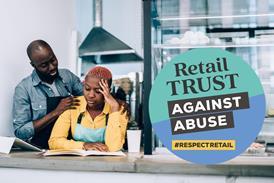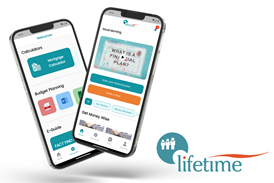
Coming out, whether to friends, family or in the workplace, can feel daunting and there is no rule book on how to do it. Everyone’s process of coming out is unique and based on multiple factors, including their own readiness, their way of expressing themselves and their environment – to name a few. Consider too that some people choose not to come out at work – they may be very private and feel that their sexuality is no one’s business but their own, so don’t feel pressured. Coming out is such a personal experience, only you can decide when – or if – you choose to. And don’t worry if you’re still unsure, here is some advice to help you explore your options – and if you’ve decided you’re ready, this will provide you with some help and support on taking the next step. Also, think about having a space or support group to speak with at all stages of the journey; without the support of others who have been there, it can feel lonely and scary. You will find many support forums on social media but might also find the support of an organisation which supports people from across the LGBTQIA+ community helpful.
Who should I tell?
For some people, coming out – whether at work, home, or socially – is quite straightforward, while for others, it can feel like a life-changing experience. Once you’ve made the decision to come out to friends, family, colleagues, or others, it’s a good idea to consider who specifically you would like to tell. In the workplace, you might like to identify an ally; this might be someone you work closely with and feel confident that they share your views on diversity, equality and inclusivity, or someone in your organisation who themselves has come out in the workplace.
How do I know they’ll be understanding?
If you’re not sure how someone will respond to you coming out, you could get a sense of that person’s attitudes by asking them about their thoughts towards LGBTQIA+ related topics in the news, about LGBTQIA+ celebrities, or even films or television programmes which include characters from the LGBTQIA+ community. In this way, you might understand more clearly if they’re either very open and supportive, or if they may not be the best person to talk to.
How do I tell them?
Consider what factors could make the process of coming out easier or more challenging for you. Is this a conversation you’d like to have in person or on the phone? If in person, would you prefer to meet your manager or colleague outside of work? If you’re planning on coming out to all of your colleagues at once, how might you do this? Would you send an email, a letter, or a Whatsapp message? However, you communicate your news, it’s important that you feel prepared and comfortable. Think about what you will say. You may want to lead up to the news of your LGBTQIA+ identity by introducing the topic slowly. For example, you might like to share articles about LGBTIA+ issues on social media, or via your organisation’s social media channels if this is an option.
What will help me to have the conversation?
Doing some research so you are prepared to answer questions that will likely come up can help. After you tell someone that you identify as LGBTQIA+, they may or may not have questions. If they do, this isn’t necessarily because they want to pry, but because they may not know anything about the LGBTQIA+ community and want to be able to support you. Some questions you might encounter include ‘how long have you known that you’re LGBTQIA+?’, or ‘What can I do to help you in your coming out journey?’ If people are struggling to understand how they can support you, you can suggest that they contact Stonewall, a charity which works to promote understanding and inclusivity for all people within the LGBTQIA+ community.
I want to tell people, but don’t want to go into too much detail - how should I handle this?
Remember that labels aren’t important. You may identify as bisexual, pansexual, gay, lesbian, trans or other (link to glossary article) but that’s your business and you shouldn’t feel under any pressure to explain any details about your identity.
If any questions seem to be very personal or verging on prying, feel confident that your personal life is just that; it’s personal. You can explain that you’d prefer not to go into detail but are happy to answer more general questions.
What happens if they don’t react the way I want them to?
Be prepared for the possibility that some people will need time to adjust to your news and even may react in a way you might not expect. Some people will need time to process the information you’ve shared with them, even if they admire and respect you, and support the LGBTQIA+ community. Remember that you’ve had time to understand your feelings but this is the first time the other person is learning this information. Think before you come out to someone how you might address different scenarios and understand that coming out starts an ongoing dialogue. It’s not necessarily always a one-off conversation.
Recognise that someone’s initial reaction may not be how they feel after they’ve been given time to process and reflect on their feelings. Be patient and recognise if someone needs time and space. Don’t take it personally but remember that everyone processes information in different ways and some might take more time than others.
Also bear in mind that circumstances may never be truly ideal for you to come out to certain people; the important thing is that it feels right for you to share the information you do with the people you trust and who will support you.
And finally…
Remember that for some people, coming out can be a lifelong process. After coming out to close friends and family, for example, you may find yourself coming out to your work colleagues, new friends, extended family, and others throughout your life. People can hold assumptions that others are straight and cisgender, so LGBTQIA+ people can find themselves in a strong position to challenge these assumptions. The process of telling others about your LGBTQIA+ identity usually gets easier over time and with practice. By coming out ourselves, we can help make it easier for future generations to be who they are.
‘The run up to telling my manager was much worse than having the conversation’
‘When I told my manager that I was going to be gender transitioning, I expected him to judge me. He’s a great person so I didn’t have any reason to think that, but I think that I’d worked myself into a state and just made assumptions about ‘worst case’ scenarios. He suggested that we have a coffee outside of work, and we sat together for a couple of hours, talking about my journey. He felt free to ask detailed, but very respectful, questions because he’d sought my permission to do so. Once I described the process of transitioning, he checked with me as to what I needed from him, our HR team, and my colleagues. The run-up to telling him was much worse than actually having the conversation. I am now six months into my journey, and it’s seen as totally normal by him, my HR team, and my colleagues. As a result, I feel totally normal, as it should be’.
-
Anny, Manchester
‘I didn’t make a big announcement, but did it gradually’
‘When I started dating people of the same gender, I didn’t feel the need to come out at work, but also didn’t want to feel I was hiding myself, my partner or my identity from colleagues. I started using the word ‘partner’ instead of boyfriend/girlfriend and, with colleagues I felt more comfortable with, I would use her name or refer to her as my girlfriend. It then very naturally became known across the workplace, in time, that I am a lesbian. I’ve not had any negative experiences or comments from colleagues and those who have spoken to me about it have been very supportive and kind.’
-
Sarah, London
Helpful resources:
Terrence Higgins Trust – support for trans and non-binary people
Mindout – mental health support for people within the LGBTQIA+ community















Was this article helpful?